Last updated on September 22, 2023
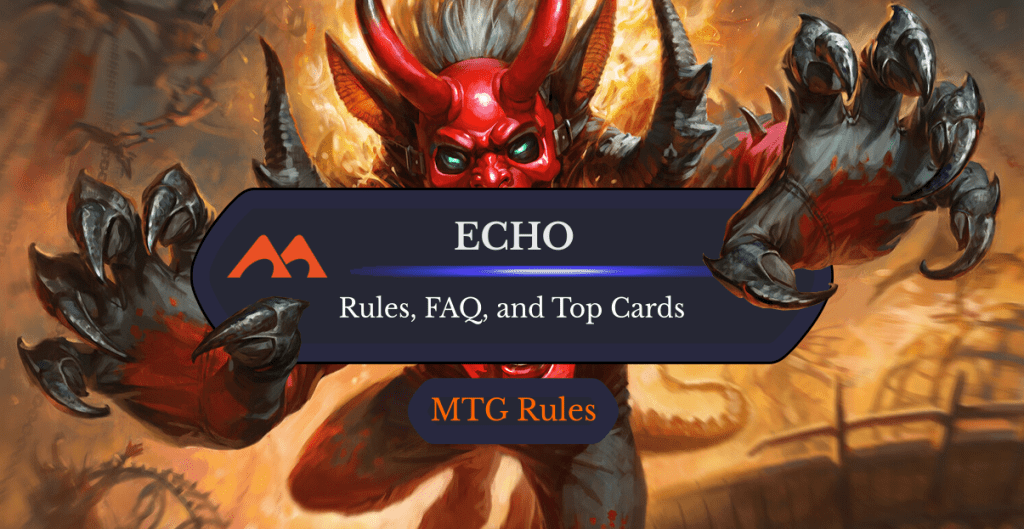
Rakdos Headliner | Illustration by Ekaterina Burmak
It’s no secret that Magic has tons of wildly varying mechanics that spice up gameplay left and right. You might sometimes find one mechanic that closely mirrors another, like hearing an echo from the developers.
Speaking of echoes, let’s talk about that! Magic’s echo mechanic is as interesting as it can be confusing, so today I’m gonna sit down and go over everything you need to know to get a good grasp on the subject.
Ready? Let’s get into it!
How Does Echo Work?
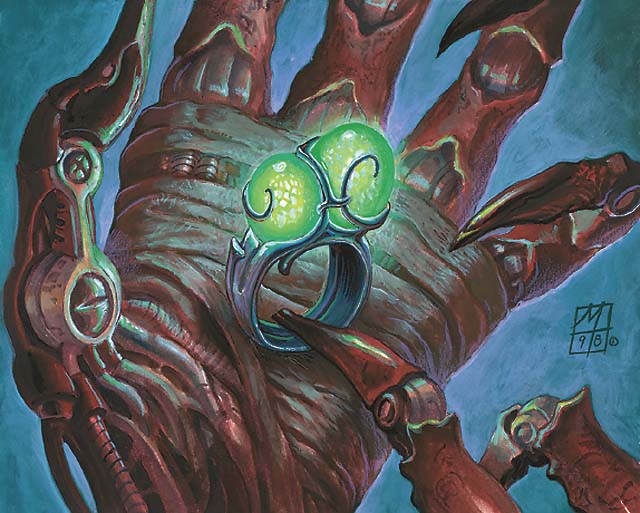
Ring of Gix | Illustration by Mark Tedin
Echo is a triggered ability that allows to pay the card’s echo cost at the beginning of your upkeep if the echo permanent entered the battlefield on your last turn. If you don’t, you have to sacrifice the permanent.
Super simple, right? If you pay the cost you get to keep it beyond that first turn, otherwise you don’t. But that also sounds rather confusing. Why would you pay for the same creature twice? Isn’t that just less card for more mana?
I’ll get there.
The History of Echo in MTG
As with all things, to truly understand something you gotta learn about how it all started. Echo first came about in 1998 when Urza’s Saga released, appearing on cards like Herald of Serra and Crater Hellion.
Echo originally meant to pay the card’s original mana cost as the echo cost, but it was changed to assign a specific cost that was different from the card’s original cost. Though the mechanic isn’t evergreen, echo has been printed in several sets over the years including Urza’s Legacy and Urza’s Destiny, Time Spiral, Future Sight, Planar Chaos, Modern Horizons and Modern Horizons 2, as well as reprints across various Commander and Masters sets.
Is Echo Mandatory?
Echo is not mandatory. While it’s required to be paid if you want to keep the permanent, you can opt to not pay it and sacrifice the permanent of your own volition. This is even encouraged in some decks and helps to highlight the powerful versatility that the mechanic is capable of.
Do You Pay for Echo Every turn? Or Is It a One-Time Cost?
Echo is a one-time deal as long as you’ve already paid the cost. If the permanent were to leave and return to the battlefield then you’d need to pay for echo again, but once you pay for it it’s done.
This can be useful in decks that can repeatedly call echo creatures back from the graveyard while benefitting from being “forced” to sacrifice them on the turn after, since you can just continuously deny to pay the echo cost.
Is Echo a Trigger?
Echo is a keyword ability that’s more specifically classified as a triggered ability. It happens as a result of the game state fulfilling the conditions that it requires to activate. Upon recognizing these conditions the ability triggers and you can choose whether to pay the echo cost.
Can You Respond to Echo?
Since echo is a triggered ability it goes on the stack, which means you can respond to it. Let’s say that your echo trigger goes on the stack and you don’t want to pay the cost. You could, at that moment, use an activated ability to sacrifice the permanent for more value rather than just let it get sacrificed to the echo cost.
What’s the Point of Echo?
Good question, my friend. I’ve got no honest clue. Kidding.
Echo is the result of a desire for an interesting design space that could bend the rules without bending the rules. Think about it; creatures with echo are allowed to have stronger stats or strong abilities attached since they require a hefty payment the turn after they’re played. This allows Wizards to come up with cards that have super fun interactions during gameplay without making them too powerful.
The problem with this is that echo is very unexciting as a mechanic. Players don’t immediately see the draw to the cards that have it because all they see is “pay this cost to keep the thing you already paid for,” which is fair.
This isn’t the most well-received mechanic since it’s one that focuses more on the downside than the upside. It also has little to no flavor to it. It’s neat, but it’s not the kind of thing that holds attention and interest.
Why is Echo Good?
Echo may not be an exciting mechanic, but it has its uses. Have you ever played a deck that synergizes with sacrifice effects? How about one that synergizes with creatures entering the battlefield, or a reanimator strategy? Therein lies the strengths that echo promotes.
Echo is at its strongest when it’s used to fuel certain strategies that care about where a creature goes and how it goes there. If you can keep slamming echo creatures down then you’ll find yourself gaining a lot of momentum off what happens when you don’t pay the echo cost.
Gallery and List of Echo Cards
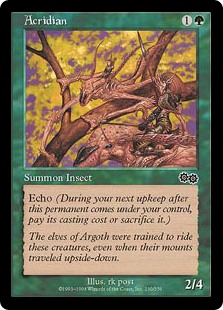
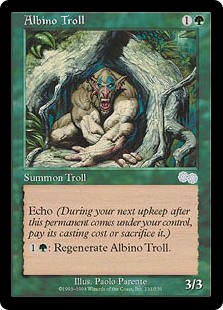
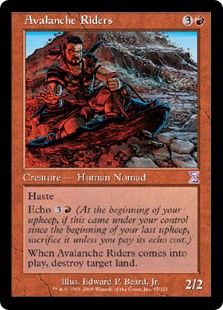
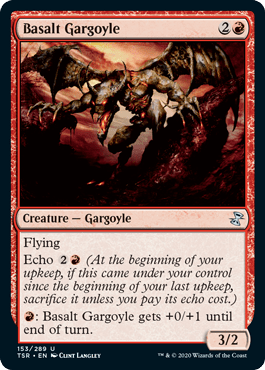
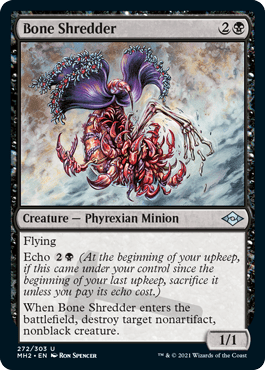
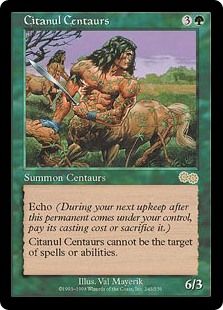
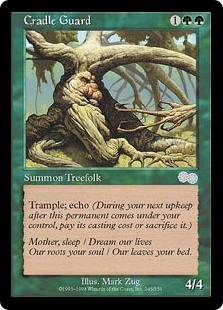
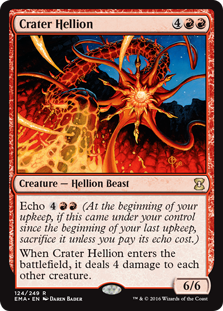
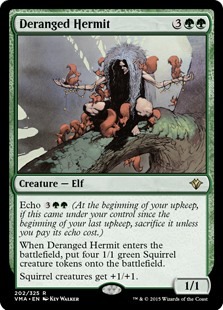
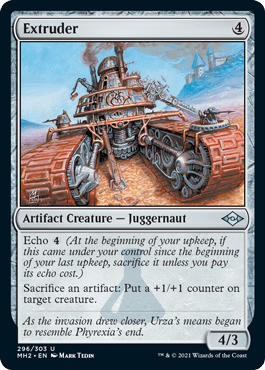
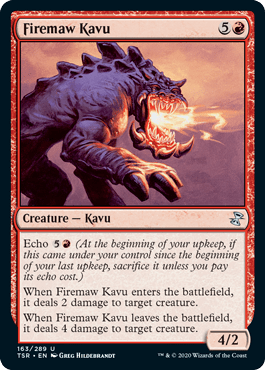
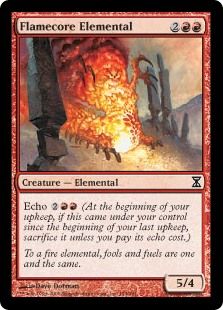
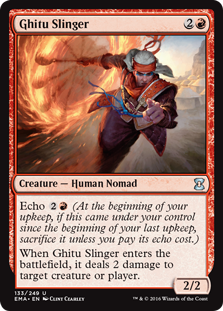
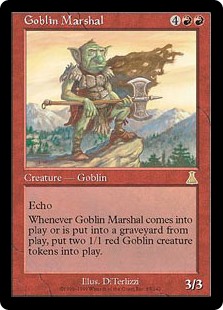
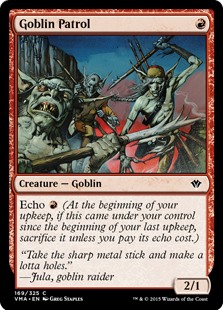
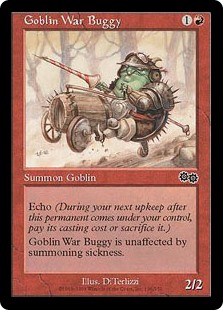
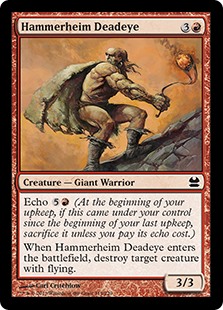
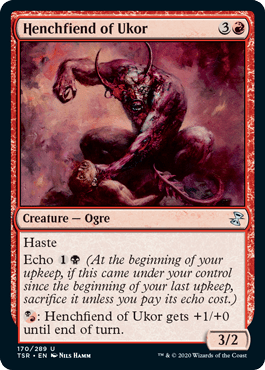
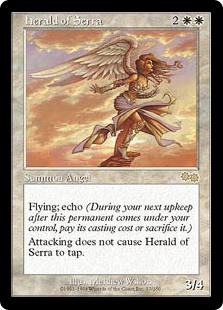
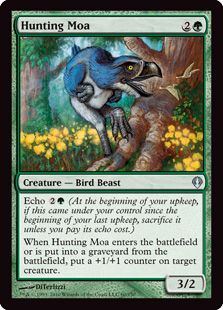
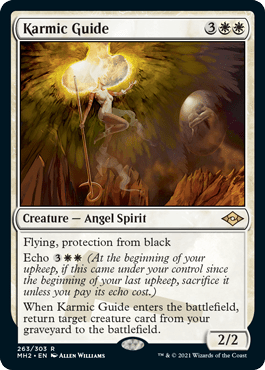
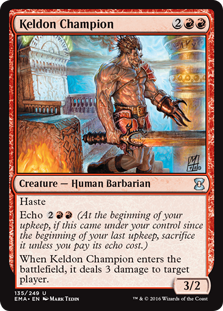
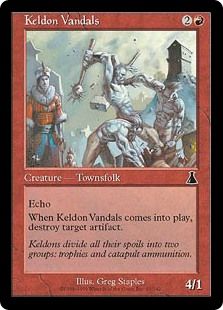
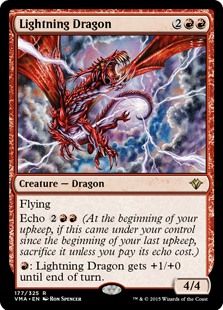
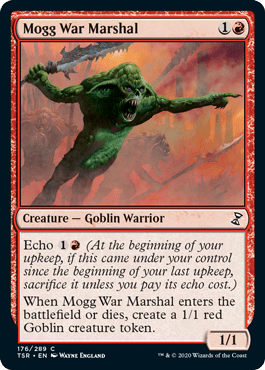
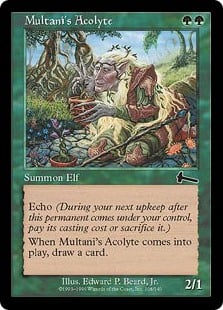
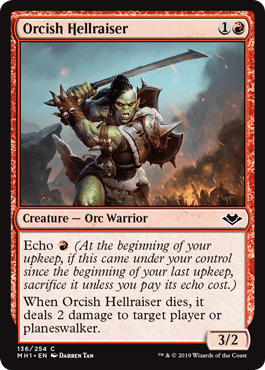
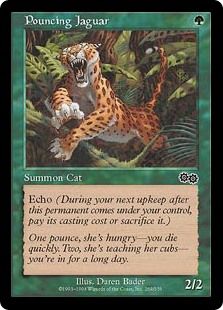
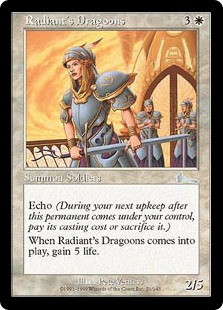
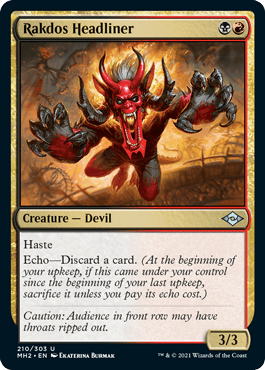
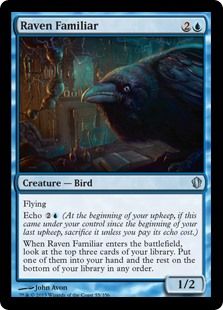
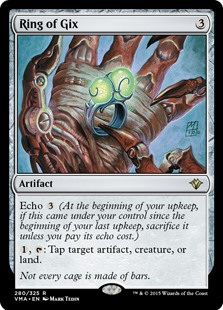
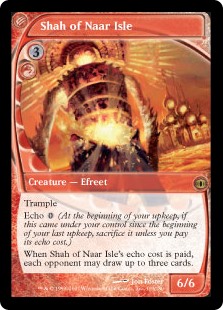
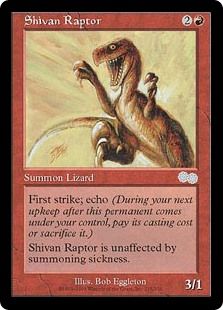
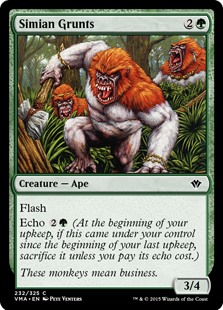
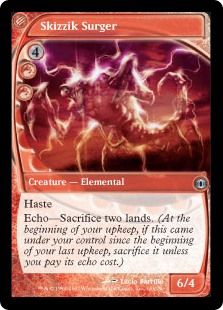
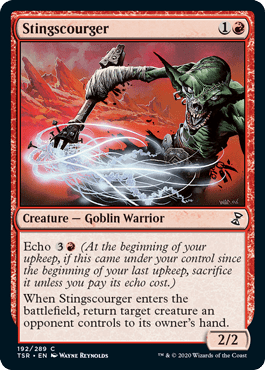
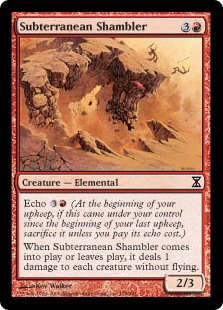
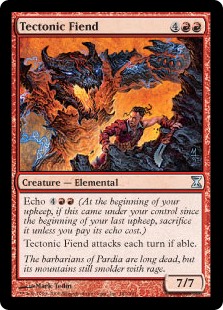
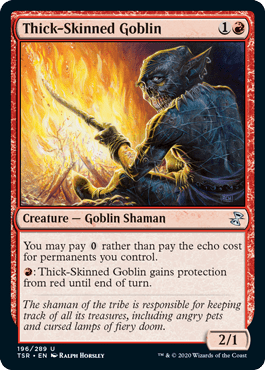
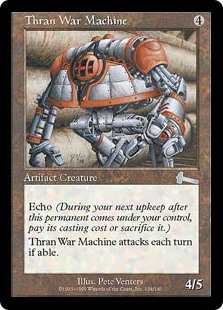
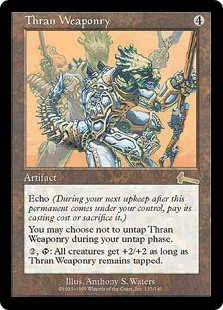
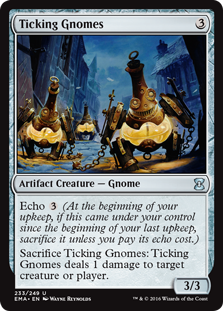
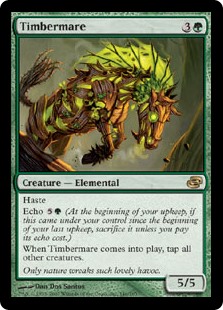
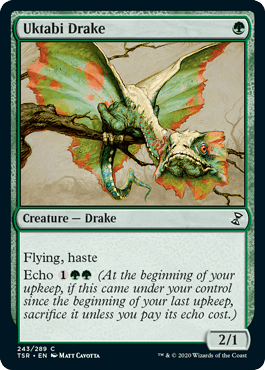
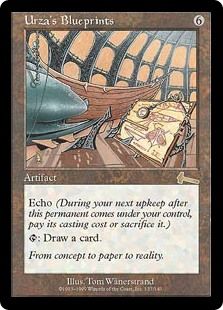
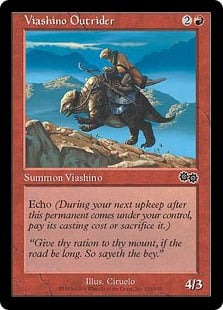
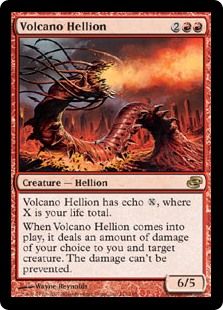
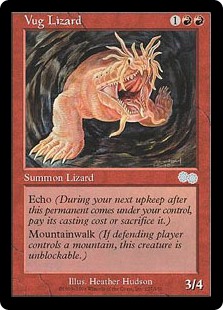
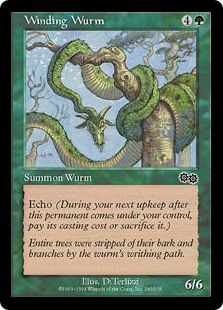
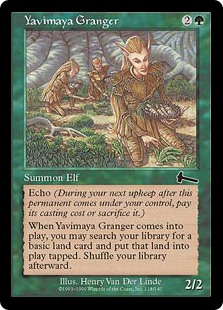
- Acridian
- Albino Troll
- Avalanche Riders
- Basalt Gargoyle
- Bone Shredder
- Citanul Centaurs
- Cradle Guard
- Crater Hellion
- Deranged Hermit
- Extruder
- Firemaw Kavu
- Flamecore Elemental
- Ghitu Slinger
- Goblin Marshal
- Goblin Patrol
- Goblin War Buggy
- Hammerheim Deadeye
- Henchfiend of Ukor
- Herald of Serra
- Hunting Moa
- Karmic Guide
- Keldon Champion
- Keldon Vandals
- Lightning Dragon
- Mogg War Marshal
- Multani's Acolyte
- Orcish Hellraiser
- Pouncing Jaguar
- Radiant's Dragoons
- Rakdos Headliner
- Raven Familiar
- Ring of Gix
- Shah of Naar Isle
- Shivan Raptor
- Simian Grunts
- Skizzik Surger
- Stingscourger
- Subterranean Shambler
- Tectonic Fiend
- Thick-Skinned Goblin
- Thran War Machine
- Thran Weaponry
- Ticking Gnomes
- Timbermare
- Uktabi Drake
- Urza's Blueprints
- Viashino Outrider
- Volcano Hellion
- Vug Lizard
- Winding Wurm
- Yavimaya Granger
Best Echo Cards
Karmic Guide + Deranged Hermit
When it comes to echo and the creatures that get to use it, only a few truly stand out. You might know some cards like Karmic Guide or Deranged Hermit. They’re cards with very powerful effects that trigger when they enter the field, making it nice when you can repeatedly bring them back. The Guide is even a way to bring back other echo cards by itself!
Multani's Acolyte + Stingscourger
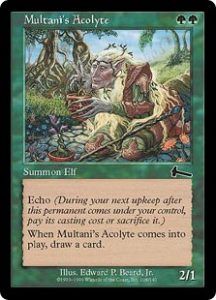
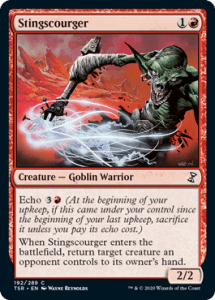
Some other funnily strong cards include Multani's Acolyte, which works really well if you can keep bringing it back to get a temporary body and to draw cards. Or you could run Stingscourger in a reanimator shell to keep messing with your opponent’s field.
Rakdos Headliner
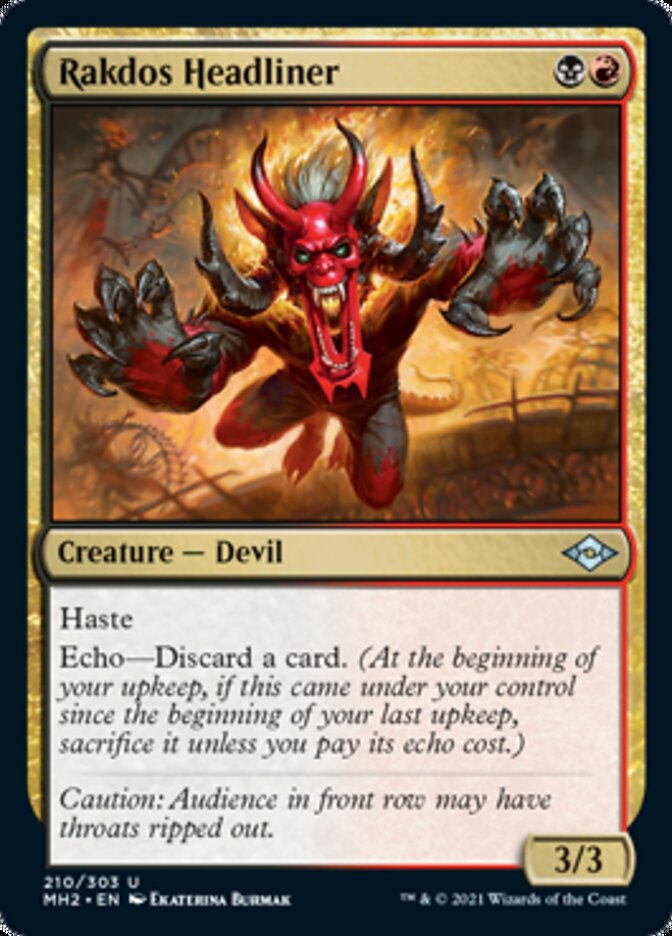
But of all the options there are, and I could go on for a while on decent echo cards, one truly stands out. Rakdos Headliner takes the cake for the best out there. It’s super aggressive as a 3/3 for with haste, and it doesn’t even ask for mana for its echo cost.
Instead the Headliner asks that you discard a card. Thankfully there are tons of discard synergies to mess with. This doesn’t even have to be in a list that cares about madness since you honestly want to keep the 3/3 body on the field because it’s so nice to have. It letting you potentially fuel an engine or another card’s requirements is just icing on the cake.
Thick-Skinned Goblin
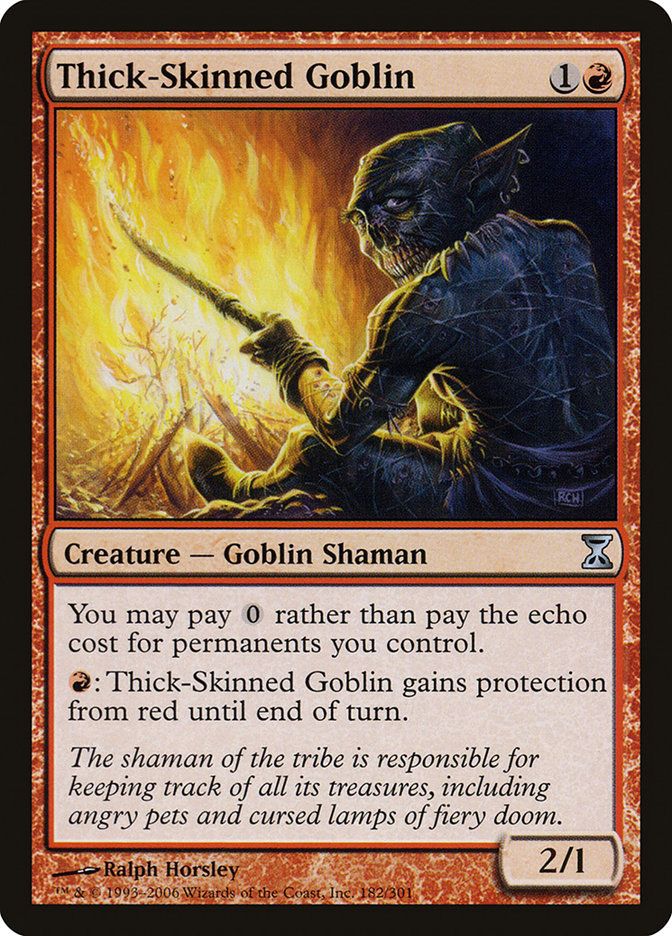
Thick-Skinned Goblin may not have echo, but it makes echo much easier to play with. It’s here to reduce the price of all your echo costs to 0 while it’s on the field. A lot of other echo cards are suddenly much more enticing with this, aren’t they?
But don’t just take it from me. Get yourself out there and start experimenting with the echo mechanic. There are tons of things to mess with, so find out what echo cards you like the best!
Like a Broken Record
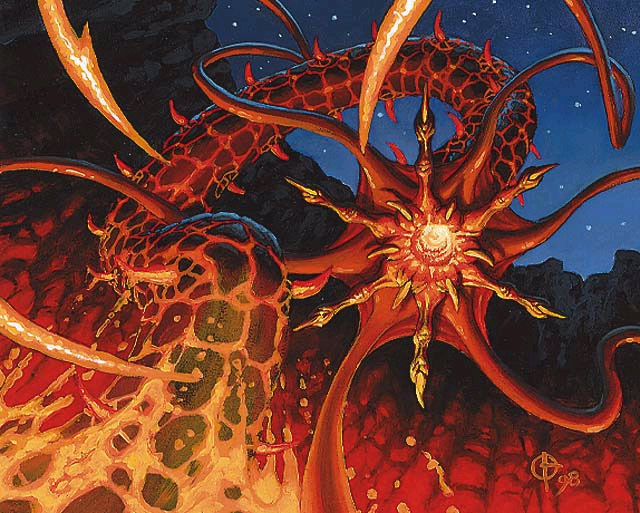
Crater Hellion | Illustration by Daren Bader
I’ve said it once and I’ll say it again, echo is interesting. It doesn’t have a lot of excitement but that doesn’t mean it can’t be useful. I think that it would be nice to see the mechanic come back with some truly powerful effects to mirror the current gameplay climate, but I just don’t think we’ll see it in a Standard set for a while, if at all.
What do you think? Anything I missed or that you still have questions about? Maybe you want to share your favorite echo card? Whatever the case, feel free to start some chatter in the comments below or over in Draftsim’s Discord.
Stay safe, and I’ll see you all next time!
Follow Draftsim for awesome articles and set updates: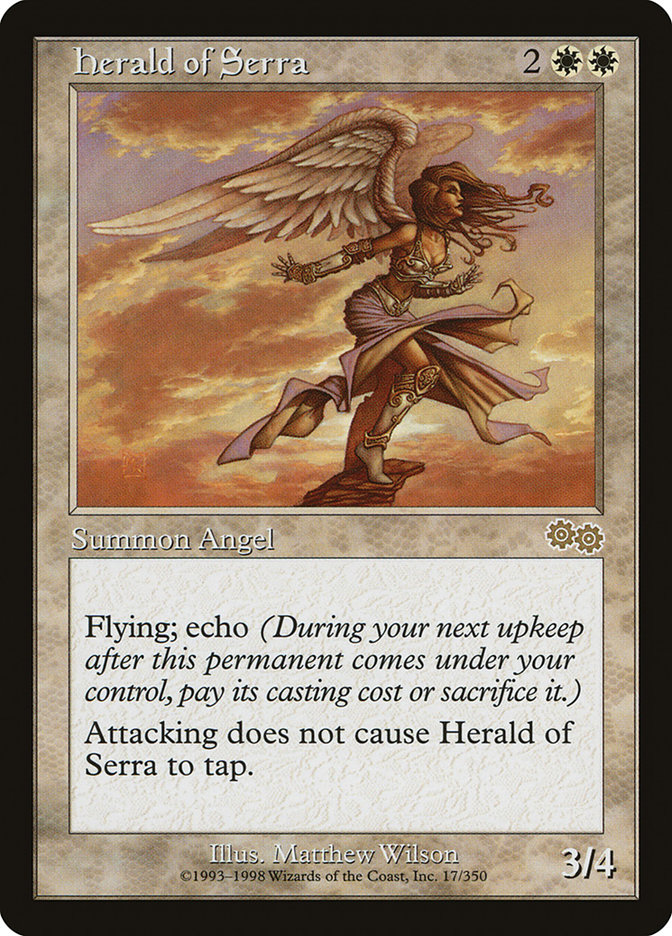
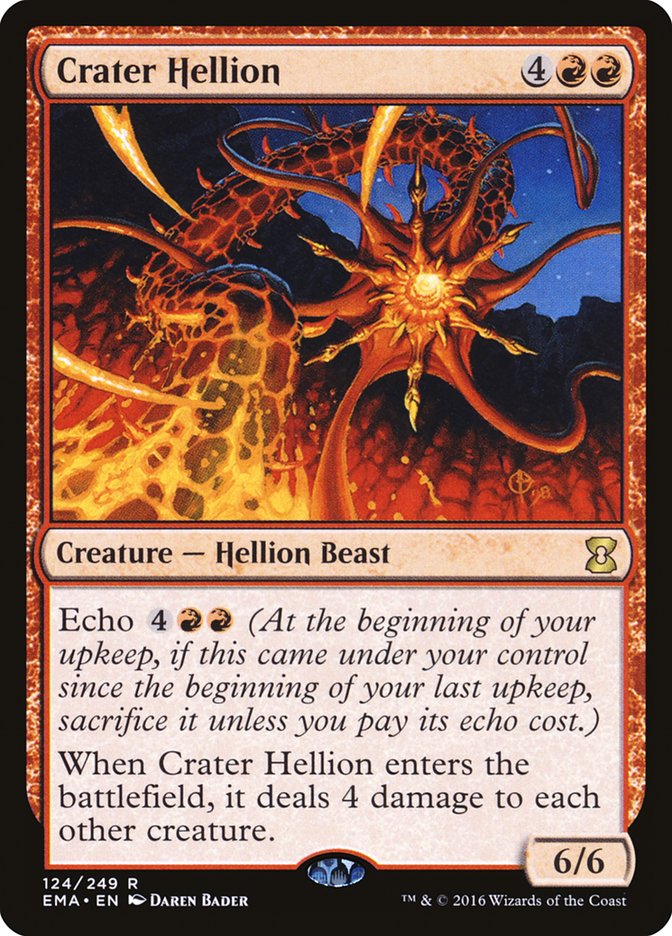
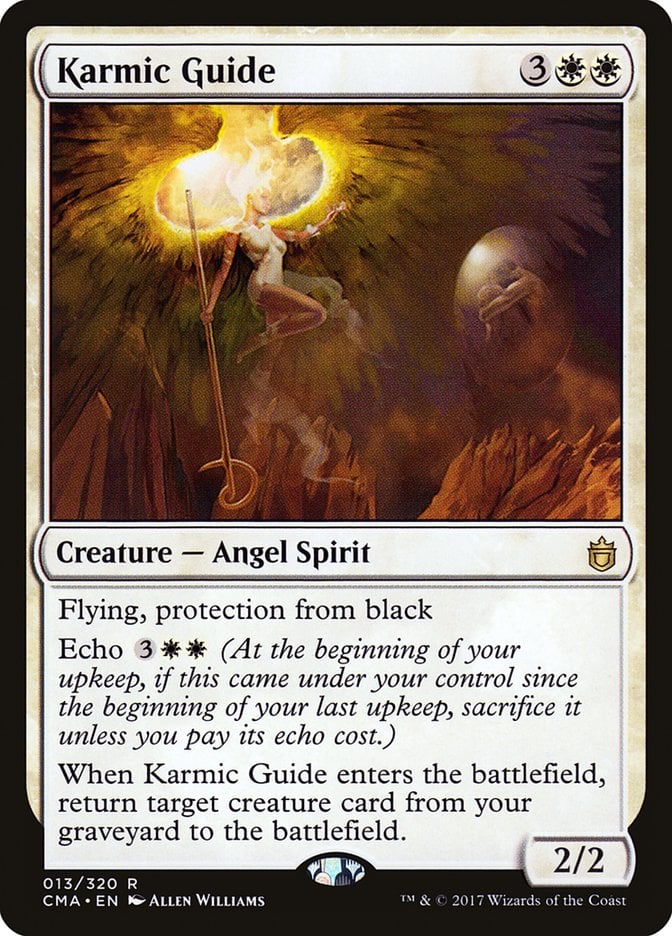
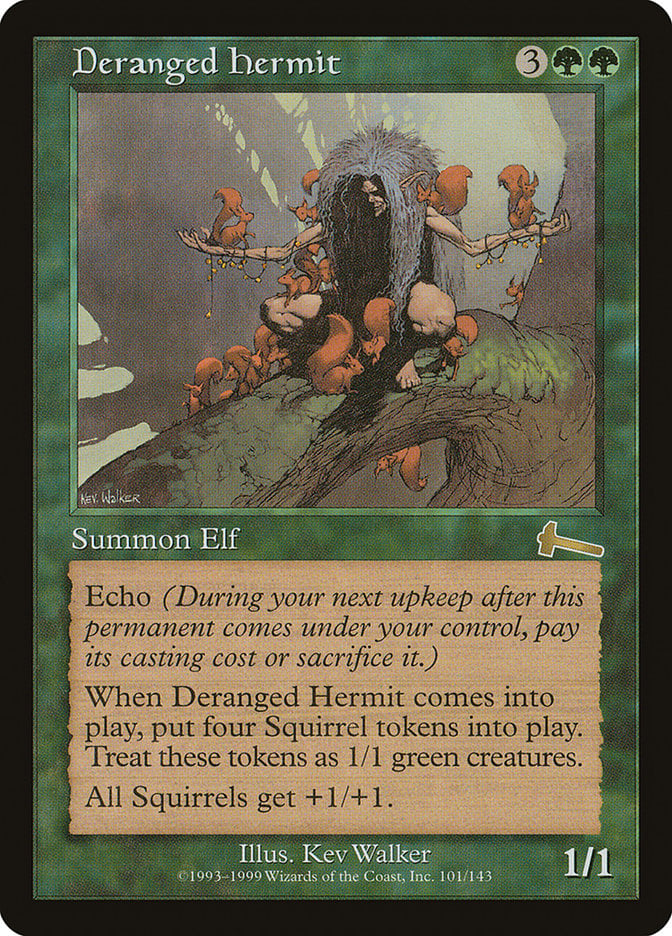
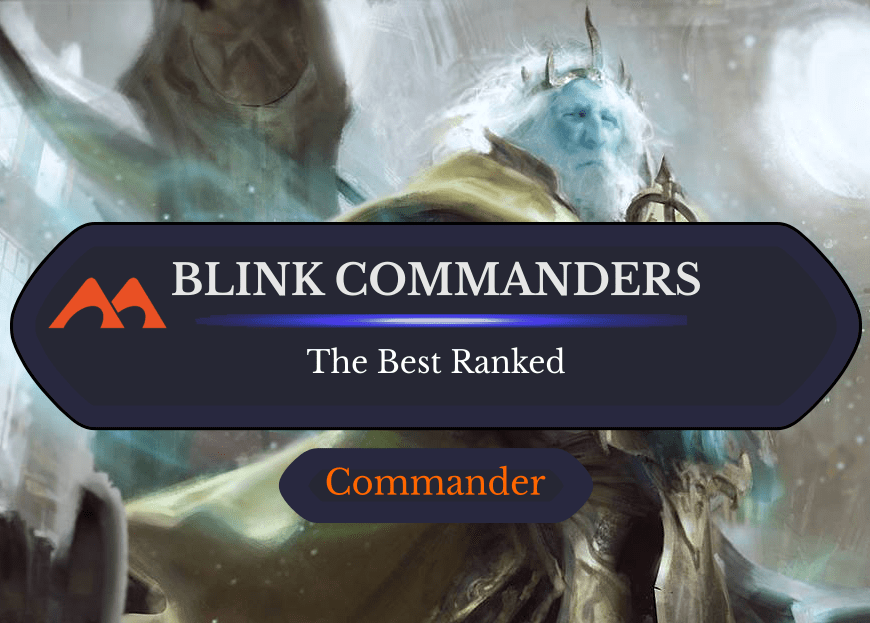
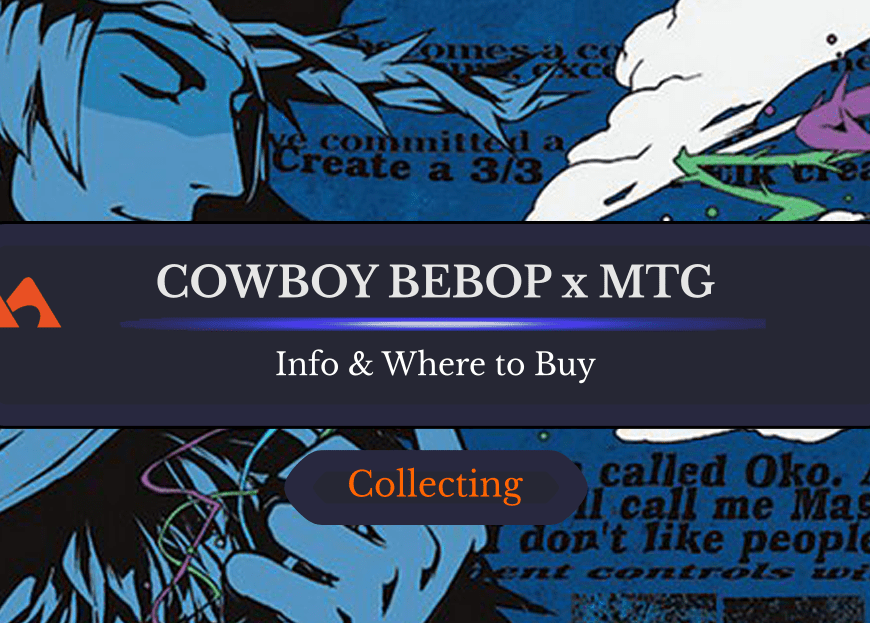
Add Comment